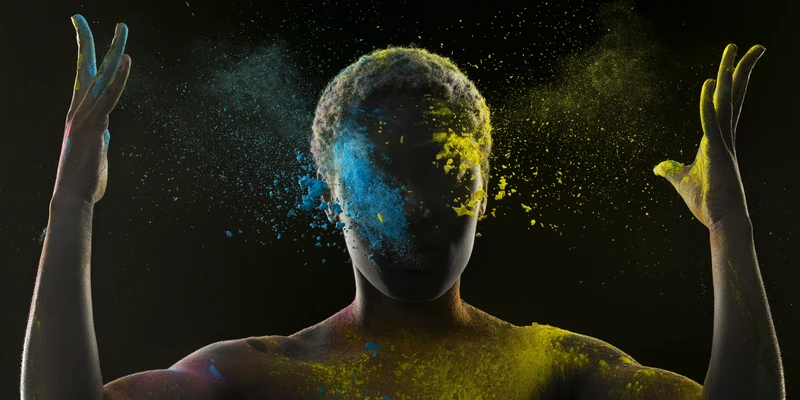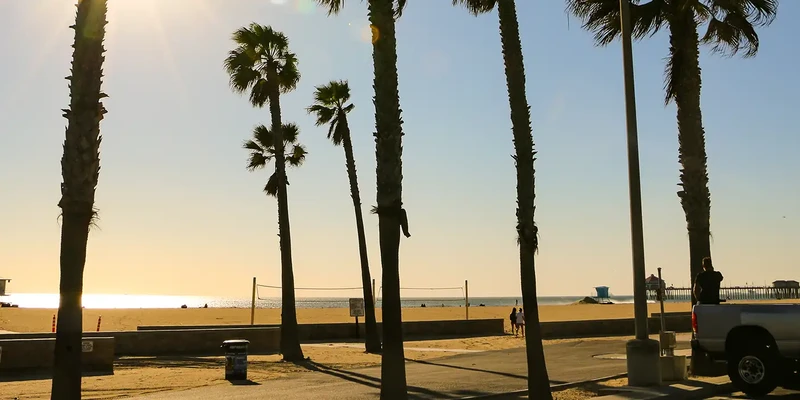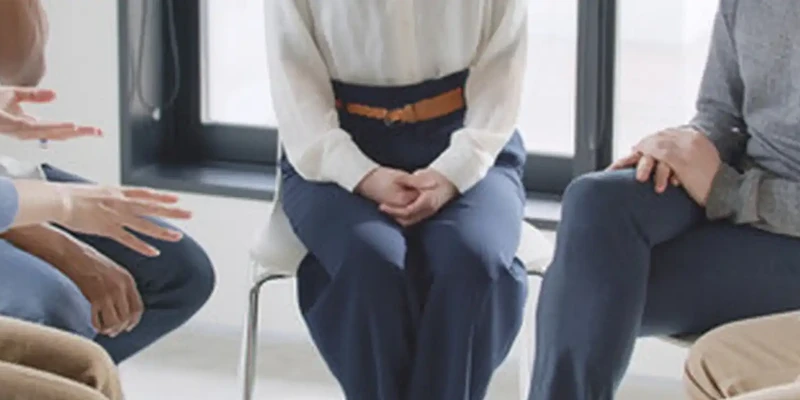
Table of Contents
- Stages of Cocaine Withdrawal by Day
- Common Cocaine Withdrawal Symptoms
- Medical vs. At-Home Detox in Los Angeles
- Where to Find Cocaine Detox Centers in LA
- Medications Used in Cocaine Detox
- Dual Diagnosis in Cocaine Detox Programs
- Post-Detox Treatment Options in Los Angeles
- Getting Immediate Cocaine Detox Help in LA
- Find Cocaine Detox Programs Near You in Los Angeles

Understanding the cocaine detox timeline in Los Angeles can help you or someone you care about take the first informed step toward recovery. Detox is the body’s natural process of clearing cocaine and stabilizing from its effects. In a city like Los Angeles, detox options vary widely—from intensive inpatient care to flexible outpatient programs—so knowing what to expect can reduce uncertainty and fear.
The detox process may begin within hours of last use, but factors like frequency of use, overall health, and co-occurring mental health conditions can influence the timeline. People often ask, “How long does cocaine stay in the body?” While traces can linger for days, withdrawal symptoms often peak in the first 3–7 days. Los Angeles detox centers are equipped to manage this period safely, especially in medically supervised environments where care is tailored based on individual needs. The city’s wide range of resources can also accommodate those needing mood stabilization, therapeutic support, or more private settings during the uncomfortable early stages of stimulant withdrawal.
Stages of Cocaine Withdrawal by Day
Day 1–3: The Initial Crash
The first few days after stopping cocaine use are often marked by what’s known as the “crash” phase. This is when your body begins to adjust to the sudden absence of stimulants, and it can be mentally and physically draining. Common symptoms during this stage include extreme fatigue, increased appetite, depression, anxiety, and strong cravings.
Because cocaine acts quickly on the brain’s reward system, withdrawal often comes with a sharp drop in dopamine, the “feel-good” chemical. As a result, you might feel emotionally flat or disconnected during this initial withdrawal period. Difficulty sleeping and irritability are also common.
Day 4–7: Physical and Emotional Withdrawal
By the end of the first week, cocaine withdrawal symptoms often peak. People in Los Angeles who are detoxing at home or in a treatment facility may experience ongoing cravings, mood swings, restlessness, and flu-like symptoms. Fatigue and vivid dreams may continue, while motivation and concentration often remain low.
This stage of the stimulant withdrawal timeline can be particularly difficult due to the combination of physical discomfort and emotional instability. Access to support—whether through inpatient detox or outpatient care—can help reduce the risk of relapse.
Week 2 and Beyond: Lingering Cravings and Mood Symptoms
After the first week, many of the acute physical symptoms begin to fade. However, lingering psychological symptoms may last for several weeks or even months. These can include intermittent cravings, irritability, depression, and difficulty experiencing pleasure. This stage is referred to as post-acute withdrawal syndrome (PAWS).
For many Angelenos, staying engaged in therapy or a structured cocaine addiction treatment program is key during this phase. Coping strategies and support systems become essential in managing symptoms and preventing relapse.

Common Cocaine Withdrawal Symptoms
Cocaine withdrawal can feel overwhelming, both physically and emotionally. Unlike withdrawal from substances like alcohol or opioids, cocaine withdrawal is not typically life-threatening—but it is intensely uncomfortable and may affect a person’s mood, sleep, and motivation. Understanding these symptoms can help you or your loved one prepare for the process with the support needed for stability.
Fatigue is one of the most common early effects, often accompanied by excessive sleeping or physical exhaustion. Many individuals also report depressive symptoms such as hopelessness, low motivation, and feelings of emptiness. Anxiety is another frequent reaction, often presenting as restlessness, uneasiness, or even panic attacks in the first few days without use.
Intense drug cravings are a hallmark symptom throughout the cocaine detox timeline, particularly in the early withdrawal phase. Cognitive symptoms like difficulty concentrating, slowed thinking, or lack of pleasure (known as anhedonia) also emerge. Withdrawn or irritable behavior, mood swings, and vivid nightmares are common as the brain works to rebalance after prolonged stimulant use.
Because symptoms can persist and fluctuate in severity, many people benefit from structured withdrawal management programs that offer medical and emotional oversight through this difficult but crucial early stage of recovery.
Medical vs. At-Home Detox in Los Angeles
When considering the cocaine detox timeline Los Angeles residents often face, one of the most important decisions is whether to detox at home or in a medically supervised facility. While some may be drawn to detoxing privately at home for comfort or privacy, it’s essential to understand the potential risks. Cocaine withdrawal can cause intense psychological symptoms such as anxiety, agitation, depression, and even suicidal thoughts. Without clinical monitoring, these symptoms can escalate quickly and become dangerous.
Medically supervised detox, available through various inpatient detox programs and private detox clinics in Los Angeles, offers 24/7 support from trained professionals. These settings ensure safety, can provide medications to ease symptoms, and are equipped to intervene in emergencies. This level of care is especially vital for individuals with co-occurring mental health conditions or a history of relapse.
Although at-home detox might seem more convenient or cost-effective, the risks often outweigh the benefits. Professional detox centers offer structured environments and access to follow-up care, providing a stronger foundation for long-term recovery. For many, medical detox is a crucial first step toward sustainable healing in Southern California.

Where to Find Cocaine Detox Centers in LA
Los Angeles County offers a wide range of cocaine detox options, from luxurious private clinics in Beverly Hills to publicly funded programs that accept Medicaid. Whether you’re in West LA, the San Fernando Valley, or Southeast LA, there are detox centers tailored to meet specific needs—be it for medical supervision, mental health support, or short-term stabilization.
You’ll find both inpatient and outpatient detox environments throughout the region. Some provide quiet residential settings, while others operate within hospital systems or community clinics. Many centers support dual diagnosis treatment for co-occurring mental health conditions, which is crucial for long-term recovery.
Detox for Young Adults in LA
Programs geared toward young adults often combine clinical detox support with peer-based counseling and education. These services may focus on vocational assistance, emotional growth, and building resilience in a population especially vulnerable to peer pressure and mental health challenges.
LGBTQ+-Affirming Cocaine Detox Options
Several centers across Los Angeles offer gender-affirming and LGBTQ+-inclusive care. These programs understand the unique stressors facing LGBTQ+ individuals, emphasizing trauma-informed detox and culturally competent clinical support.
Veteran Detox Programs in Greater LA
Veteran-Specific Detox Programs for veterans address both stimulant withdrawal and issues like PTSD, chronic pain, or traumatic brain injury. Many facilities coordinate with the VA or offer staff trained in military cultural competency to ensure each veteran receives appropriate and respectful care.

Medications Used in Cocaine Detox
While there are currently no FDA-approved medications specifically for cocaine detox, clinicians often use various evidence-based treatments to help manage withdrawal symptoms and support early recovery. The goal is to ease anxiety, improve sleep, and stabilize mood as the brain begins healing from stimulant use.
Common medications used in medically supervised detox settings include antidepressants for mood regulation, sleep aids for insomnia, and anti-anxiety medications to reduce agitation or panic. In some cases, antipsychotics may be used if hallucinations or severe paranoia occur during the withdrawal phase. For individuals with co-occurring mental health and detox needs, these medications are often part of a larger dual diagnosis approach that integrates psychiatric and substance use care.
Ongoing research continues into medications that may reduce cravings or prevent relapse, including innovative treatments under study in Los Angeles and across California. A personalized medication plan is often developed as part of an individualized withdrawal management program.
Dual Diagnosis in Cocaine Detox Programs
Many individuals seeking cocaine detox in Los Angeles also struggle with underlying mental health conditions such as anxiety, depression, or trauma-related disorders. This overlap, known as a dual diagnosis, is common in stimulant addiction. Without addressing both the drug use and the mental health issue, long-term recovery becomes much harder to sustain.
In dual diagnosis detox programs, professionals screen and assess for co-occurring disorders early in the withdrawal process. Licensed clinicians consider your mental health history, symptoms, and how cocaine use may have masked or magnified existing challenges. Once identified, your treatment plan will likely include psychiatric evaluation, medication management (if appropriate), and integration of therapies like CBT or trauma-informed counseling.
Choosing a detox program with dual diagnosis capabilities is especially important in Los Angeles, where cocaine addiction rates intersect with high demands on mental health care. Programs offering comprehensive cocaine addiction treatment in LA can provide a safer, more holistic path forward—one that treats both brain and body with the support you need to stabilize before entering longer-term care.

Post-Detox Treatment Options in Los Angeles
Completing a cocaine detox is a critical milestone, but it’s only the first step toward lasting recovery. Residents of Los Angeles have access to a broad range of post-detox treatment options designed to support long-term healing and reduce the risk of relapse. These programs help bridge the gap between detox and full rehabilitation, offering structure and continued care.
Sober Living as a Transitional Step
Sober living homes offer a stable and substance-free environment for individuals who have completed detox or inpatient treatment. These homes encourage accountability, peer support, and gradual reintegration into everyday life. In Los Angeles, sober living can be especially helpful for those without stable housing or a healthy home environment after detox.
How IOP Can Extend Detox Recovery
Intensive Outpatient Programs (IOPs) provide ongoing care without requiring overnight stays. They allow you to live independently while attending therapy and support groups several times per week. For those searching “outpatient detox near me,” IOPs in LA often offer a practical follow-up to inpatient or medically supervised detox.
Using CBT to Manage Post-Detox Cravings
Cognitive Behavioral Therapy (CBT) is widely used across California rehab programs to help individuals identify and change thought patterns that trigger cravings. CBT tools can be essential in the early weeks post-detox when emotional and psychological vulnerabilities are common.
Motivational Interviewing During or After Detox
Motivational Interviewing (MI) is a client-centered technique often integrated during or after detox to strengthen personal motivation for change. It can be particularly useful in helping individuals develop goals and commit to aftercare plans like therapy, outpatient treatment, or sober living in the Los Angeles area.

Getting Immediate Cocaine Detox Help in LA
If you or a loved one needs help today, Los Angeles offers access to same-day admissions for detox and treatment. Many detox centers and rehab facilities—even some Medicaid-approved and private options—accept quick intakes for stimulant withdrawal cases. Whether you’re searching for medically supervised detox or urgent residential care, acting early improves safety and comfort during cocaine withdrawal.
Verified rehab centers in Los Angeles can provide clinical assessments, start detox medications, and support your emotional needs from day one. Calling ahead or walking into a certified detox clinic may help you begin treatment within hours. Don’t wait—early help can ease symptoms and protect your recovery journey.
Find Cocaine Detox Programs Near You in Los Angeles
If you or someone you care about is facing cocaine withdrawal, finding the right help quickly can make all the difference. Whether you’re seeking inpatient detox in Los Angeles, outpatient support nearby, or specialized care for co-occurring needs, a variety of options are available throughout the city and county. Take the next step to explore detox programs that meet your needs—confidential, compassionate care is closer than you think.
Frequently Asked Questions
How long does cocaine detox last in Los Angeles?
Cocaine detox typically lasts between 5 to 10 days, although the exact timeline can vary. Factors like how long you've used, the amount, and your overall health can affect the duration. Some people can experience lingering emotional symptoms for weeks after physical detox has ended.
What are the common withdrawal symptoms during cocaine detox?
The most common symptoms include fatigue, depression, increased appetite, restlessness, and strong cravings. You might also experience sleep disturbances or anxiety as your brain chemistry begins to stabilize. These symptoms are usually most severe in the first few days of detox.
Is medical detox necessary for cocaine withdrawal?
Medical detox isn’t always required, but it can make the process safer and more manageable. For people with a history of heavy use, co-occurring disorders, or relapse risk, medical oversight helps monitor symptoms and prevent complications.
Are there detox centers near me in Los Angeles?
Yes, Los Angeles has a range of inpatient and outpatient detox centers, including private clinics and community-based programs. Whether you're in Beverly Hills or East LA, options are available across neighborhoods to fit different needs and resources.
Can I use insurance to pay for cocaine detox in California?
Many detox programs in California accept insurance, including Medi-Cal and private plans. It’s important to check with providers about coverage details, copays, and what's included in each program.
What happens after cocaine detox is done?
After detox, continuing treatment helps prevent relapse and supports long-term healing. Options may include residential rehab, outpatient therapy, counseling, and support groups tailored to cocaine recovery.
Is detox safe for teens or older adults in LA?
Yes, specialized detox services are available for both teens and older adults. These programs are designed with age-specific medical and emotional needs in mind, ensuring safety and compassion throughout the process.
How soon can I start detox treatment near Los Angeles?
Many detox programs offer same-day or next-day intake for urgent cases. Immediate placement often depends on insurance, space availability, and medical screening, so reaching out promptly is recommended.
What type of support is available post-detox?
Post-detox support typically includes therapy, peer groups, medication management, and relapse prevention programs. Ongoing care is vital for building a stronger foundation in recovery.
Are there any affordable detox options in LA County?
Yes, several nonprofit, city-funded, and Medicaid-accepting detox programs operate throughout Los Angeles County. Sliding-scale fees or financial assistance are available at some facilities to help make detox more accessible.








































